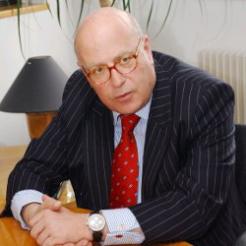NCVO chief executive Sir Stuart Etherington says the government and some other funders are taking a high-risk, “venture capital” approach to grants nowadays; scattering seed funding among lots of new organisations and projects in the hope that a few of them will fly.
Sir Stuart said the government and the Big Lottery Fund in particular seemed to be pursuing a strategy of disinvesting from established organisations and awarding funds to new organisations and new projects.
NCVO was one of dozens of Cabinet Office strategic partners that lost funding when the government decided to pare down and eventually phase out its strategic partner programme.
Sir Stuart said the new funding strategy seemed similar to the way that venture capitalists invest – by taking their chances on a number of projects and “expecting to get a hit rate of, say, one in five or one in seven”.
One such example is BIG’s decision to give £2.5m of its initial £5.3m Olympic legacy funding pot to two new organisations – the Join In Trust (£1.5m) and Society Network Foundation for Britain’s Personal Best (£1m).
Sir Stuart said NCVO was approached to become a strategic partner of Britain’s Personal Best (BPB) long before its £1m bid was submitted to BIG, but wanted to see evidence of two things before signing up: a business plan outlining how the project would be sustained after the initial funding runs out, and commitment from a major media partner.
“For a project like that to succeed, you need a major broadcaster on board,” he said, “like Comic Relief has the BBC.”
But NCVO never heard back from Britain’s Personal Best (BPB), Etherington said, so it did not get involved.
He said that if the organisers couldn’t produce this evidence for NCVO it was unlikely that they gave it to BIG either, yet BIG went ahead and approved the application.
BPB first-year project plan released under FoI Act
The year-one project plan agreed by BPB with BIG, released to civilsociety.co.uk under the Freedom of Information Act, shows that the organisers proposed to “explore sponsorship opportunities” in July, “pursue sponsorships” in August and September, and chase a “follow-up opportunity for core funding for Y2/Y3” in November. It would “secure and allocate resources” in March 2014.
Sir Stuart contended that recently funders seemed to be content for applicants to spend part of their grant trying to find new funding to sustain the project beyond the initial term. But this is a high-risk approach, he said, when surely a better way is to require the applicant to have a strategy for making it sustainable before approving the funding.
Society Network Foundation and its commercial arm, Big Society Network, have had over £3m from government and BIG since they were launched in 2010.
NCVO took over Big Society Network project
Big Society Network asked NCVO to take over the running of another of its projects about eight months ago, said Sir Stuart. It’s Our Community, initially funded by Nesta and the Calouste Gulbenkian Foundation back in 2011, explores innovation in services across Europe. NCVO will complete the research and write up the findings in due course.









